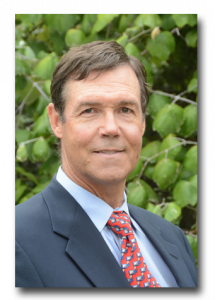I sat down with Becky Andrews recently to discuss the approach that we take with our guests experiencing pain at Forum Health Austin.
Dr. Taylor:
“Pain. It’s just part of life, but It is definitely a two-edged sword. On the positive side, pain signals danger to your body. In fact, without the ability to sense pain, you are at a big disadvantage. The genetic inability to perceive pain sets you up for serious injury-say for example the inability to sense a hot stove leading to a serious burn. Without pain limiting the motion of a sprained joint, additional injury would likely occur.
Even though pain is a necessary part of life, pain that persists beyond the state of providing a protective warning signal can lead to misery and disability.
What is the root cause of pain? Signals for pain come to the brain from nociceptors which are receivers in our skin, muscles, joints, and other tissues that can convert pain-causing triggers like toxins, chemicals, acids, heat, cold, pressure when they are strong enough to carry a pain message to the brain. This is where the connection to inflammation comes in. Inflammation is directly generated by actions of the immune system. No immune system response equals no inflammation. This would seem to imply that the answer to inflammation-caused pain is to “turn off” the immune system. In fact, some protocols to control inflammation-caused pain do exactly that. Examples of this would be high-dose synthetic steroids, methotrexate, adalimumab, and etanercept. The obvious downside is the fact that turning the immune system off or way down can leave your body unprotected. After all, the role of the immune system response is to eliminate and contain the foreign infection threat.”
Becky Andrews:
“As a naturopathic doctor, bodyworker and acupuncturist, when considering a patient with pain, my first question is “what is the cause?” I look at the pattern, history, location, and quality of the pain. If the pain is in a specific, fixed location, I first look for structural issues. Starting with skeletal alignment – checking to make sure joints are properly aligned and tracking correctly. Then looking for muscular/connective tissue injury or imbalance. Improperly aligned joints can both cause and be caused by muscle spasm. Muscle spasm and misaligned joints can cause pinched nerves. Soft tissue pain from structural issues is localized and fixed (stays in one spot) and is often burning, gnawing, tingling, or sharp. Joint pain that is due to injury to a specific joint is also localized and fixed with a similar pain pattern. Acupuncture and bodywork are an amazing combination for correcting structurally based pain. In Chinese medicine, pain is considered a “stagnation” of either Qi (energy) or blood. Acupuncture is able to correct the blocked flow of energy and restore function to injured or restricted tissues. Pain relief can be immediate in some cases, especially for acute injuries. My background in bodywork and physical medicine gives me a more complex and precise understanding of anatomy and structure, allowing my treatments to be more focused. Combining the power of acupuncture to restore and correct the flow of energy with soft tissue release techniques facilitates a more rapid and thorough return to function and comfort.”
Dr. Taylor:
As an Environmental Medicine specialist, my first considerations when considering patients complaining of persistent pain that is not readily explained by an injury or structural abnormality is to consider what root cause triggers may be inducing inflammation leading to the pain. Infectious agents such as viruses, bacteria, molds, yeast and parasites, toxic chemicals like pesticides and toxic metals like lead and mercury, and physical toxins like EMFs and dirty electricity are usually the most likely culprits.
I find that these environmental toxic triggers may be well tolerated by some folks while other individuals develop massive inflammation with only minimal exposure. These sensitive folks act like canaries in the coalmine.
My job is to identify the toxins, eliminate on-going exposures, maximize the body’s ability to clear the toxins in a process I call detox, and take steps to reverse my patient’s excessive sensitivity to the toxins using diet, nutrients, stress management, and lifestyle changes.
I have found this approach to be quite successful in clearing inflammation and the pain it causes.”
Becky Andrews:
“When pain is “everywhere” or is wandering around, then I consider systemic causes of inflammation. Acupuncture can still be helpful in systemic inflammation by helping release “heat” or “damp” and even signaling the body to improve its defenses, balance hormones, etc. With systemic issues, however, I find that acupuncture is more of a “guide to the body” than the primary tool. I rely on herbs, diet, and nutritional supplements to help restore balance to the immune, inflammatory, hormone, and nervous systems. In some cases, there is a pathogen (stealth infections) that needs to be addressed. In some cases, global pain is caused by consuming inflammatory foods (gluten, dairy, and sometimes nightshades being the most frequent culprits). In some cases exposure to mold causes systemic inflammation and body pain (often the fascia and joints of hands, feet, and hips are first). Having a body burden of heavy metals (lead, mercury, aluminum, etc) can also cause chronically tight, rigid muscles because the heavy metals get in the way of not only mitochondrial function, but they prevent calcium and magnesium from working correctly to contract and relax our muscles.”
Dr. Taylor:
Combining these techniques with other inflammation-reducing tools available at Forum Health Austin like infrared sauna, photobiomoduation or “cold laser” treatments, and IV nutrients add powerful approaches to reduce the pain associated with inflammation and structural abnormalities.”
In summary, when addressing pain, figuring out the cause of the pain is pivotal in selecting the correct tools to resolve the pain. Pain resolution is not a “one pill fits all” situation. It requires some good medical detective work, good physical assessment skills, and a wide pallet of treatment options. On a more personal note, helping reduce pain is something we are both passionate about.
Becky Andrews ND, LAC, MSA

Dr. Becky Andrews is a naturopathic doctor, acupuncturist, herbalist, body worker and is certified in permaculture design. On her meandering journey through life, she has been a ballet dancer, musician, amateur theologian, master gardener, mountaineer, cyclist, and circus artist. Her passion is the fusion of paradigms and disciplines. As a naturopathic physician, acupuncturist, and student of permaculture, she focuses on a “whole systems” approach to health challenges of the individual and the human condition as a whole.
Dr. Andrews received her Doctorate of Naturopathic Medicine and Masters of Acupuncture at Bastyr University in 2003. She is a graduate of the Boulder College of Massage therapy (1995) and also holds a BA in psychology from the University of Kentucky (1992). Prior to practicing in Austin, she was medical director of Mosaic Natural Health Clinic in Seattle, WA, and served as faculty at Bastyr University. She has advanced training in environmental medicine, IV therapy, chelation, injection therapies, massage therapy and permaculture design. She has apprenticed with master herbalists, and native healers around the globe, and led a medical volunteer team in Kenya. She has served on the board of directors for both the Washington and Texas Associations of Naturopathic Doctors and was the education coordinator for the American Botanical Council. She currently offers naturopathic consultations at Peoples Rx in Austin and serves as faculty at AOMA Graduate School of Integrative Medicine.
In addition to faculty appointments, she offers lectures & seminars for the public, government, corporate, student, and professional health education. Her practice specializes in complex, chronic, and “difficult” cases, especially relating to digestive health, fatigue, hormone balancing, mood, and detoxification. She works extensively with MTHFR and related genetic challenges as well as environmental illnesses from mold, heavy metal, and chemical exposures. Her combined training in massage therapy, acupuncture, and naturopathic medicine give her a unique and multi-faced approach to treating chronic pain and injuries. Her decade of primary care experience in Seattle gives her special insight into combining naturopathic, traditional western, and eastern paradigms with conventional medical approaches. In addition to seeing patients and teaching at AOMA, she has a “secret” life as a trapeze artist. Dr. Becky is accepting new patient consultations. You can schedule an appointment by calling 512-800-5309.
 Wally Taylor MD
Wally Taylor MD
Dr. Taylor practices integrative medicine at Forum Health Austin in Austin, Texas. After obtaining a general medical doctorate degree from the University of Texas Southwestern Medical School in Dallas he completed a general medical internship and residency training in head and neck surgery ENT and allergy. After 20 years of service in the US Army Medical Corps and practice in Colorado and Texas, he founded Texas Integrative now Forum Health Austin where he now offers a functional holistic approach to disease which treats the entire individual instead of each separate symptom. He has found more satisfying results using this Systems BioIndividualized approach.
His motto: “Health and Wellness from Head to Toe”.
512-800-5309









